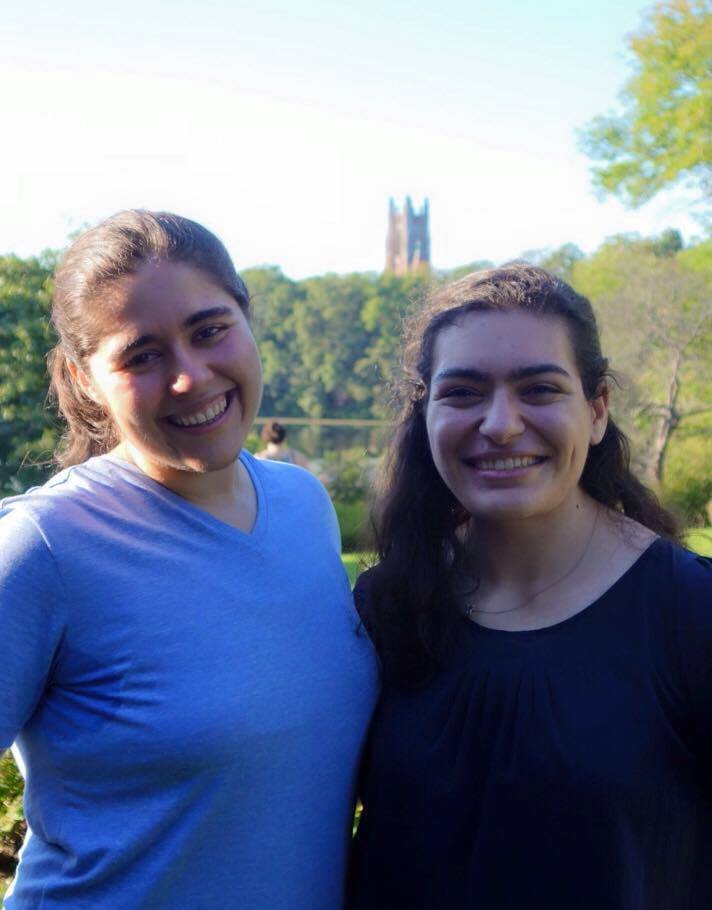‘Re-Orientation’ provides administrative and social support
A new unconstituted org called the Re-Orientation group was created this year to provide administrative and social support for students who have returned from leaves of absence or study abroad. The typical college narrative is that college takes four years to complete, but this group aims to work with students who were not able to finish within the traditional four years or who have left campus for an extended length of time.
The group was started by Melissa Jo Zambrana, who was formerly in the Class of 2015 but now refers to herself as Class of 2015.5.
Zambrana first noticed the lack of administrative resources for students on leave when she returned from studying abroad last fall. She then sustained a concussion, which forced her to take the rest of that semester and the spring semester off. During her leave, Zambrana was inspired by the resources available to students who took leaves from Princeton University.
“I’m kind of surprised that there isn’t anything like it [here]. People take leaves, and it’s not a new issue, so I’m very confused as to why there’s no resources at all. I even believe that they should have one person on faculty to handle these type of issues,” Zambrana said.
Wellesley students may elect to take leaves or may be forced to take leaves of absence for various reasons. Students may choose to take personal leaves or study abroad. Students may also be forced to take medical leaves if they cannot maintain their academic standing or if they are unable to meet financial obligations.
One administrative problem that Zambrana wants to tackle is the fact that diplomas are currently only given out in May for students who have taken Wellesley classes, and in October for students who have taken MIT classes and received their grades later. For her, receiving a diploma in December 2015 would allow her to remain associated with the class that she identifies with from her time at Wellesley.
However, not all students have experienced administrative problems with taking a leave. Nikita Crofton ’16 took two leaves of absence to focus on mental health; a yearlong leave after her first year and a two year leave of absence after completing her junior year. She did not have any problems with the administration.
“Administratively it was pretty smooth. I worked a lot with Dean John O’Keefe who is just super nice and always happy to help. I kind of had to take a leave after my first year because Wellesley told me I couldn’t come back until I had made up credits,” Crofton explained.
Katie Warshauer ’16 took a medical leave during her senior fall, and also felt that the administration worked well with her.
“I was working very closely with Jennifer Stephan, the dean of the Class of 2015, because I had a medical issue come up suddenly. And the school actually worked really well with me. So I’m very happy with the way in which my leave was handled,” Warshauer said.
For Warshauer, as with the majority of the students returning from a leave of absence, many of the issues she struggles with now are social.
“It’s a bit of an isolating experience when you don’t know 75 percent of the campus, especially with a school this small. You know the physical campus, but not the people who populate it,” Warshauer said.
Crofton also struggled socially because many of the people who she originally knew have graduated.
“I did get lucky because I was placed in temporary housing in the Shafer resident director apartment with other people who had been on leave of absence,” Crofton explained. “And one of the people who I was rooming with just happened to have come to Wellesley the same year that I did, in 2009. So yeah, I’ve been hanging out a lot with her.”
For Zambrana, reconnecting with friends after her leave was difficult as well.
“They think that I’m the person that I used to be, so they expect me to be the same person that I was before I left. But people change and when you take a semester off. Things change,” Zambrana explained. “Members of the group have a safe space to talk about friendship and how things have changed because we can relate to each other.”
As a result of this social struggle, several of the group’s initiatives are focused on social activities and reconnecting with the campus as a whole.
It can often be difficult to tell if students are eating alone in the dining hall out of necessity or if they are truly lonely, so the group hopes to institute “Eat With Me” tables where students can indicate that they would prefer to eat with other students instead of eating alone.Re-Orientation also plans to host a “speed friending” event that will allow them to get to know new friends or acquaintances on campus.
Zambrana is hoping that the group will continue as a permanent part of Wellesley life even after she leaves at the end of this semester. She would love to eventually incorporate the Stone Center in the group and work to provide resources for those considering taking a leave. She envisions the group as an online and in-person network for people who are considering taking, have taken or are returning from leaves of absence.
Photo Courtesy of Melissa Zambrana






